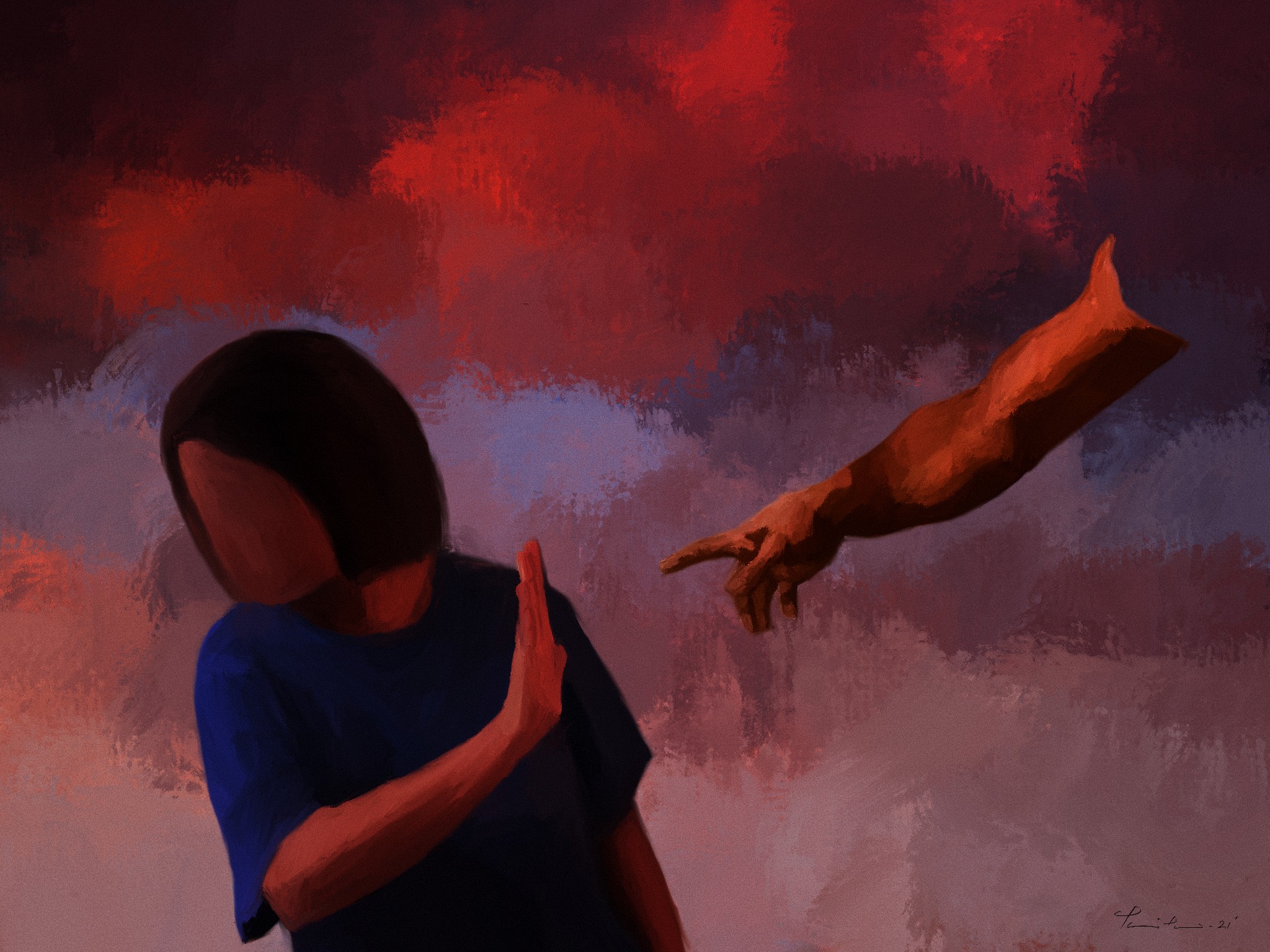Growing up in a religious family, I knew a lot about stories from the Mahabharata and Ramayana – more than others in my peer group. I was six when I learnt how to chant the ‘Gayatri Mantra‘, ten when I had ‘by-hearted’ the aartis that suited various Hindu gods. By the time I was 15, I understood the religious importance of fasting on various days of the week.
This was the Hinduism I grew up with. There was no stench of communalism in the air; India’s heart beat to the rhythm of secularism, as prescribed by our constitution. I still love the sound of morning azaan, the taste of food at langars and the festivities associated with Christmas.
What has ceased to exist is the belief in the presence of a supreme supernatural power.
Also read: The ‘Glorious’ History of Hindutva and its Hypocrisies
I cannot pinpoint the exact moment the disbelief started sinking in, but I remember the trigger being a follow request on Instagram from a pro-Brahmin religious group while I was in college. The bio read: “Aadhi roti khaenge, bhookhe mar jaenge, par mandir wahi banaenge (We will eat less food, we will die hungry, but we will make temple there)”. It continued, “Hume rozgaar nahi, Hindu rashtra chahiye (We don’t need employment, we want a Hindu country)”.
I dropped my last name from my username since it had let to an extremist group to reach out while assuming that god meant more to me than basic rights such as education, employment and food.
It was around then that my religious ideology shifted its gears to agnosticism – I was still not convinced of atheism.
§
Over the last couple of years, the streets of the country have been taken over by students demanding their right to affordable education. Does ‘mandir wahi banaenge’ holds any meaning when first-generation learners face the threat of exclusion? Unemployment has driven people to die by suicide. Degrees gather dust as the unemployment crisis worsens. Hunger is prevalent in our country – based on the Global Hunger Index, we’re worse off than our neighbours Pakistan, Bangladesh and Nepal. This fact makes it clear that the lack of access to healthy food that many among the marginalised sections of society face.
Then there are countless injustices inflicted by those who are privileged in society. And so it has been for centuries.
Should a supposed “higher power” not have intervened by now?
My disillusionment about religion grew when I saw a Muslim colleague turning down a pot of her mother’s freshly-made chicken handi biryani as she was travelling by train. She feared being lynched if by chance anyone presumed her packed lunch contained beef. She was convinced that if such a scenario came to pass, no one would care for an explanation before taking violent action. It haunted her dreams.
And this scenario haunted mine too. I was reminded of the Dadri incident that kickstarted such a fear in 2015, when a vigilante mob attacked the home of 52-year-old Mohammed Akhlaq and killing him on the suspicion of slaughtering a cow.
The template had been set, and scores of more such stories started cropping up from various corners of India. My religion had blood on its hands; blood that was spilt to cries of ‘Jai Shri Ram’.
Blood that was spilt because the victim believed in a different god, and not one from the pantheon of Hindu gods.
Why would any god allow such slaughter in his name, I wondered.
Beef festivals were organised in south India, opposing this hooliganism. My disagreement to kill in the name of god pushed me to attend one despite the fact that I am vegetarian. It was a form of protest for me. After all, if god existed – in an animal or otherwise – would he not step in some form to show his disagreement?
Thereafter, my agnostic mindset coursed to atheism.
Also read: The Importance of Being a Gandhian Hindu in ‘New India’
After all, how can a ‘creator’ exist and watch biodiversity in all its forms being destroyed? Forests are blazing. Glaciers are no longer frozen. Tigers are endangered. Humans are killed on a daily basis – physically, mentally and culturally. And while there may be wonder in the world, there is so much pain all around – something I couldn’t believe a ‘benevolent creator’ would have wanted.
So where is God? Does such an entity even exist? This would be a good time to show up. And till such a time arrives, I will continue to believe otherwise.
Over centuries, religion has been used as a tool to create a sense of community but there has also been too much violence in the name of God and faith. I do not try and sway anyone when it comes to their religious beliefs, but the continuous attacks by one section of society that wishes to strip India of its secular outlook and enforce the supremacy of one religion have left me reeling and unable to accept the existence of god.
It is the agenda of certain groups that has driven me away from my beliefs. It is the daily cycle of violence we are being forced to witness in the name of religion.
I have lived through times where courageous journalists like Gauri Lankesh have been shot dead because they dared to raise their voices against a regime that is keen to spread hatred.
I can’t accept that god, often spoken about with positivity and hope, can allow such disasters to take place on his behalf day after day.
Fasting on some days is now a mere detoxification process for me.
I am better off without just a watching-over-us God.
Aishwarya Tripathi is a journalist based in New Delhi. She has reported on the recent protests regarding agrarian crisis in India and is interested in rural journalism.
Featured image: Pariplab Chakraborty

